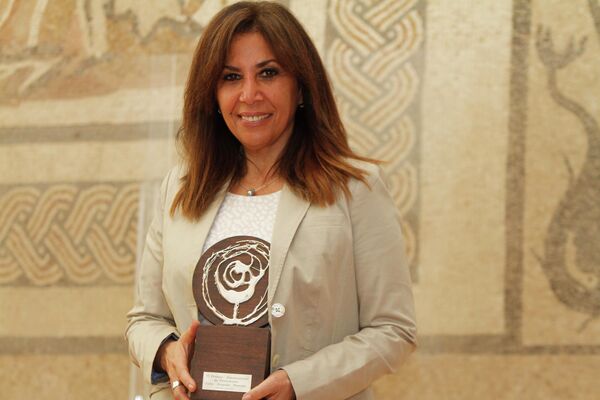CAIRO, November 26 - The highly-controversial constitutional declaration that Egypt's Islamist President Mohamed Morsi issued on Thursday, dramatically extending his powers, has polarized the country and plunged it deeper into political and economic turmoil.
The Presidential decree puts President Morsi above judicial oversight, preventing the dissolution of both the constituent assembly (the 100-member panel currently drafting the country's new constitution) and the Shura or Consultative Council. It has also allowed him to dismiss the highly unpopular Mubarak-appointed Public Prosecutor Abdel Meguid Mahmoud and replace him with Judge Talaat Ibrahim, who headed the Independence of the Judiciary Movement.
Revolutionary and political forces almost immediately united to condemn the decree, with some describing President Morsi as a "fascist dictator." Sunday saw the third straight day of clashes between Morsi's supporters (mostly Muslim Brotherhood members) and his opponents. These clashes, although intermittent, left one person dead in the Nile Delta City of Damanhour.
Rival groups hurled rocks and Molotov cocktails at each other, and the headquarters of the Muslim Brotherhood's Freedom and Justice Party in Alexandria, Port Said, Ismalia and Suez were stormed and set ablaze.
Riot police fired tear gas to disperse the opposition protesters who had set up camp in Tahrir Square, and said they would not budge until Morsi reverses his decision.
"President Morsi must rescind his decision as the presidential decree is destabilizing the country and will likely have serious repercussions," warned Amr Hamzawy, Professor of Political Science at the American University in Cairo and former parliamentarian. He was among the thousands of protesters who took to the streets on Friday to denounce the decree.
Reform leader Mohamed El Baradei, who also joined the protest alongside former Presidential candidates Amr Moussa and Hamdeen Sabahy, urged Egyptians to protest to "save Egypt from the power grab."
The decree came hot on the heels of a Morsi-brokered truce agreement between Hamas-run Gaza and Israel. Observers suggest that the Egyptian President was emboldened by the praise he won from world powers over these successful mediation efforts. This, they suggest, spurred him on to seize far-reaching powers that place him above the law.
Addressing his supporters outside the Abbasya Palace on Friday, Morsi defended his decision, saying the move was meant "to protect the revolution and was in the interest of all Egyptians."
He pointed the finger at judges he said were trying to derail the transition and keep the country trapped in a never-ending cycle of chaos. He added that people had the right to oppose him as long as they expressed their opposition peacefully. He condemned the acts of violence committed by what he described were "thugs hired by former-regime loyalists to wreak havoc," President Morsi said.
On Sunday the President released a statement saying that his new powers were "temporary and necessary to put Egypt on the right path to democracy."
Presidential Aide for Political Affairs Pakinam El Sharkawy told RIA Novosti that the decree was "an attempt by the President to end the chaotic transition period and move forward – beyond the bottleneck – to rebuild Egypt." She also insisted that the new powers granted by the president were "temporary" and would last only until a new constitution was in place (determining the powers of the office of President).
She hinted that a conspiracy to unseat the President orchestrated by judges loyal to the former regime had prompted this drastic measure, adding "this was a necessary step for the democratic transition." She further explained that if the constitutional court were to have ordered the disbanding of the constitutional assembly or the dissolution of the shoura council, declaring them 'unconstitutional' (as was expected), this would have left Egypt without any institutions of state, de facto sending the country right back to square one.
"There has been very little progress over the last two years. It is time to move forward. This means having a new constitution, then holding legislative elections so that the country can move towards stability. Only a stable Egypt will attract tourists and investors back to the country," she said.
El Sharkawy also defended Morsi, saying he was working in the interests of all Egyptians and that the extraordinary presidential decree was an attempt to realize some of the goals of the revolution. The President had promised that those charged with killing the protesters during and after the January mass uprising would be re-tried.
At a meeting on Sunday, the Judges' Club – an independent body of the country’s judges – described Morsi's decision as a blow to judicial independence and called for a general strike in all courts. The meeting was interrupted by the crowd chanting "the people demand the downfall of the regime" – the slogan of the January 2011 uprising that toppled former President Hosni Mubarak.
The opposition has called for a million-strong rally in Tahrir Square on Tuesday to protest the declaration and call for regime change. Meanwhile, President Morsi's Muslim Brotherhood supporters have called for a rally in the nearby Abdeen Square, as an expression of solidarity with the President and support for his actions. There are concerns over the potential for a violent confrontation between these rival groups, as has happened previously.
In an effort to ease the crisis that threatens to deepen the decades-old secular/Islamist divide, President Morsi has called for a meeting with senior judges on Monday to try and iron-out the differences over his new powers. But as intermittent clashes continue between security forces and opposition activists, fears are growing that the crisis may escalate into all-out civil war.
Shahira Amin is an Egyptian journalist, the former deputy head of Egyptian state-owned Nile TV and one of its senior anchors.



